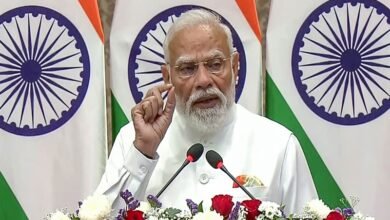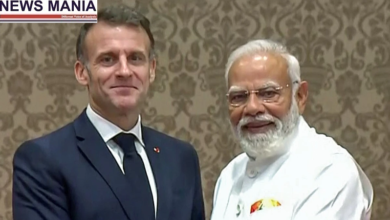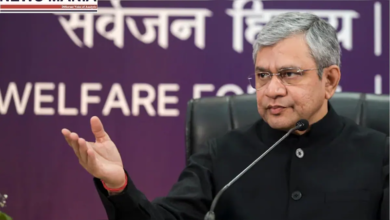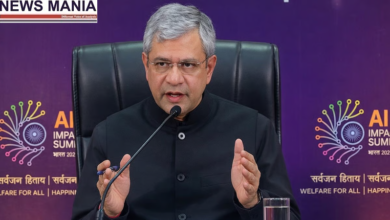Tribal contemplation camp at the foothills of Susunia Hills, Bankura, West Bengal
Saikat Kumar Basu / 8th January 2025
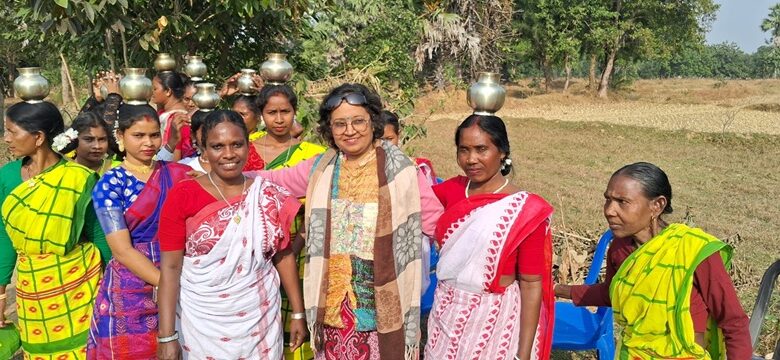
A grand tribal contemplation camp was held between December 28 and 29, 2024 at the foothills of the Susunia Hills in a place called Damin-I- Koh of the Bankura district of West Bengal. The camp was attended by close to 200 participants and organized by Rural Development Society (RDS), Jai Bhim India Network (JBIN) and United Religions Initiative (URI). The program started on 28th through a grand celebration of establishing the sacred Jaherthan by tribal elders and priests in the august presence of both tribal and non-tribal particpants of the camp. The Jaherthan is a sacred grove which is a residing place of Jaher Ayo and worshiping place of Santal tribe. It is a characteristic feature of a Santal village on the village edge where holy spirits live and where a series of annual festivals take place. This sacred grove is set aside in the founding of the village and left undisturbed except at times of festivals. Inside is set a series of natural (uncut) stones which represent the Bongas, but are not substitutes except during festival. The tribal leaders representing various local communities were recognized and felicitated in the camp to honour their traditional leadership roles and support for the socio-cultural, socio-religious and socio-economic development of their individual communities spread across the state.
A number of contentious issues related to Abua Dism, Abua Raj, Gram Sabha, 5th and 8th Schedules, Forest Act, Tribal Knowledge System and tribal wisdom were discussed in the camp. Contemporary issues such as sustainable development and growth, conservation of forests, wildlife and biodiversity, prospects of organic agriculture and sustainable agricultural systems and practices were discussed in this forum by various dignitaries including academics, researchers, scientists, teachers, social development workers, agronomists, tribal leaders, various NGO members and camp participants at large. Important notes were taken for following up in the next campbto be held in Kolkata sometimes in February, 2025.
Mr. Saradindu Biswas (JBIN) talked about the political consciousness of tribal communities and they are being exploited by of a particular group of people in the country. Hr mentioned, “Like caste consciousness or regional consciousness, tribal consciousness is fast developing to be a political tool that has become symbolic of privileged treatment, separatist tendencies, and in places a barrier to national integration. It is therefore important to highlight the challenges of tribal socio-economic development and empowerment issues therefore to the forefront to attract government attention”.
Reverend Kalyan Kumar Kisku (RDS & URI) stressed upon the fact, “Tribes are very simple and humble and possess a great amount of feelings for their religious leaders and community members in general. They grow in the intimacy of the social atmosphere of the community to which tgey belong. Their cose association with nature inspires them to lead a carefree life. They feel pleasure in roaming about hills, forests, and fields. Nature makes them intimate with the environment. They often meet friends and visit their own relations on different festive occasions and in periodical new relations along with association with various people. It is therefore important for us to work towards their socio-economic empowerment through various tribal development programs, education and awareness initiatives, fight against superstitions, better heakth and nutrition prigrams and striving towards establishing a vibrant, dynamic and sustainable tribal society for the future.”
Prof. (Dr.) Suparna Sanyal Mukherjee from Seacom Skills University, Birbhum and one of the emineny speaker at the camp mentioned, “There have been many attempts made in anthropological consensus to define and characterize on tribes, but there is no definite contemplation on defining characteristics. Territorially race, economy animism, political autonomy, etc have been variously used”. She emphasised, “It appears that the dozens of definitions and characteristics of tribes are floating around in an anthropological literature arena as diverse as the field situation encountered by those proposing the definitions. The orthodox denotes that the tribes revealed in the anthropological conception is a social group, usually with a definite geography, distinct dialect, cultural homogeneity, and unifying social organization. It may include several sugroups, such as sibs or villages. It may and may have a common ancestor as well as presiding deities. The families or small communities making up a tribe are linked
through economic, social, religious, or blood ties, i.e., kingship bondage. From an Indian context, too, the term is a British legacy. They classified as tribe such people who were beyond the veil of the Hindu Varna system occupied inaccessible hills and forests and were of dark complexion. Neither Hindu nor any other Indian language has a corresponding term with exact connotation as a tribe. This in itself is proof enough that Indian language has never conceptually set these people apart from the rest.”
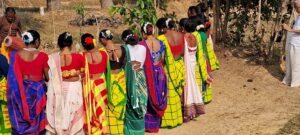
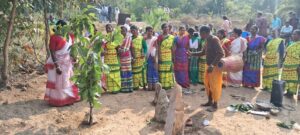
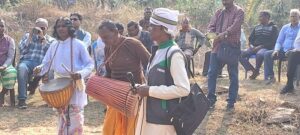
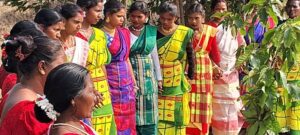
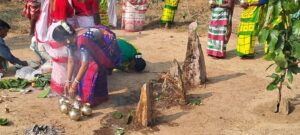
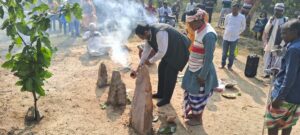
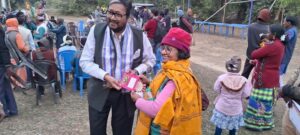
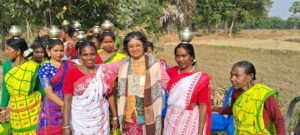
Photo credit: Saikat Kumar Basu
(This story has not been edited by News Mania staff and is published from a Media Release)



